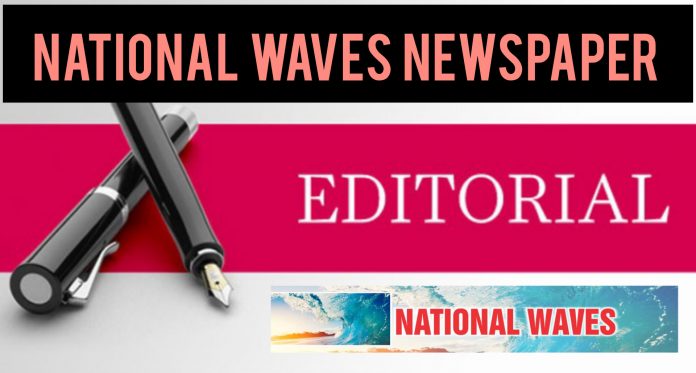The Federal Government has given indications that Nigerians should brace up for fresh electricity tariffs in months.
Making this grim disclosure is President Bola Tinubu’s Special Adviser on Energy, Olu Verheijen, who stated this in an interview in Dar es Salaam, Tanzania, according to Bloomberg.
Verheijen was in Tanzania attending a World Bank-backed conference where Nigeria presented a $32 billion plan to boost electricity connections by 2030. Private investors are expected to contribute $15.5 billion and the rest will come from public sources, including the World Bank and African Development Bank.
The energy adviser said Nigeria’s power prices need to rise by about two thirds for many customers to reflect the cost of supplying it.
Higher electricity tariffs, which need to be balanced by subsidies for less-affluent consumers, are required to fund the maintenance needed to improve reliability and to attract private investors into power generation and transmission, said Verheijen.
“One of the key challenges we’re looking to resolve over the next few months is transitioning to a cost-efficient but cost-reflective tariff,” Verheijen said.
This is needed “so the sector generates revenue required to attract private capital, while also protecting the poor and vulnerable,” she said.
The move to raise tariffs comes amid mounting pressure from Nigeria’s debt-burdened electricity distribution companies for tariffs to be cost-reflective so they can improve their finances.
Beyond government’s rhetoric and justification for the proposed hike we think there’s poor contextual analysis of all the issues around it. For one, Nigerians have been repeatedly ripped off by Discos over the years and yet supplies have remained poor and haphazard.
Secondly, the citizens who are going to bear the brunt of the increase are already burdened by existential threats as a result of hardship they are going through driven by the removal of subsidy on petroleum, rising inflation occasioned by floating of Naira and rising prices of basic commodities and housing.
To further ask Nigerians to pay more for electricity is grossly insensitive, especially coming in less than two weeks after telecoms companies jerked up their tariffs.
The government’s promise to subsidize the poor in the payment of the proposed hike is neither here nor there. What are the statistics and how will federal government identify those that fall in this category?
NATIONAL WAVES is of the view that the timing is wrong and insensitive.
Nigeria’s privatised generation and distribution in 2013, yet prices set by the government’s Nigeria Electricity Regulatory Commission don’t cover the suppliers’ costs.
Government subsidies cover some of the difference, but profitability is hard to achieve.
Nigeria’s power industry needs significant investment to achieve its development aims, Verheijen said. Of the country’s 14 gigawatts of installed power, only 8 gigawatts can be transmitted around the country and just four or five gigawatts can be directly delivered to homes and businesses, she said.
Siemens AG is working with the government on a $2.3 billion project to improve transmission and distribution, while more than seven million Nigerians in rural areas have been given access to power via decentralized renewable projects.
“Your energy policies have to be closely linked with your own ambition for your country,” Verheijen said.“ Our own ambition is to be a $1 trillion economy in five years and to move to an upper-middle income country in 25 years.”
Nigeria’s gross domestic product is currently just under $200 billion, according to the International Monetary Fund.
As it’s government should rethink its planned electricity hike until the time when economy improves and people are more liquid. This is the right thing to do. We can not as a nation continues to dance to the music of Bretton Wood Institutions without domesticating their tunes to adapt to local context. Its high time this administration should let Nigerians breath. The administration must act responsibly. Though pressed by criticism, president Tinubu has said that against the view held by critics of the hike that the increment is over 65 percent, according to him, government is set to subsidize by 35 percent. Whatever the argument of the administration it’s the considered view of NATIONAL WAVES that an ounce of increment at this point in time is a sign of apathy to the hardship in the land.
It’s not too late for the administration to reverse itself for the sake of the suffering citizens.


